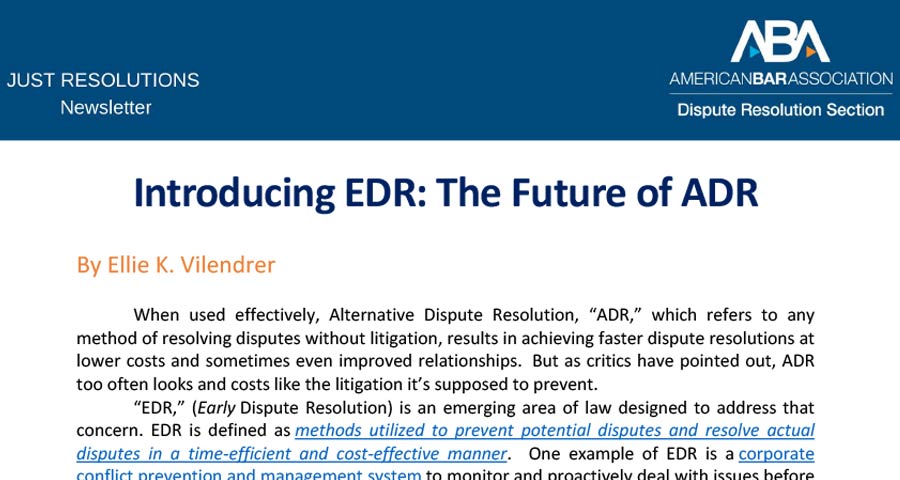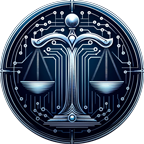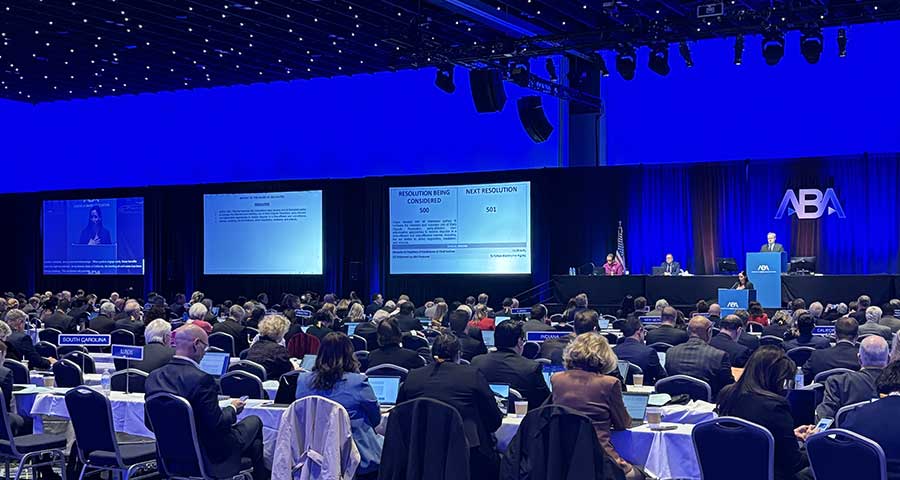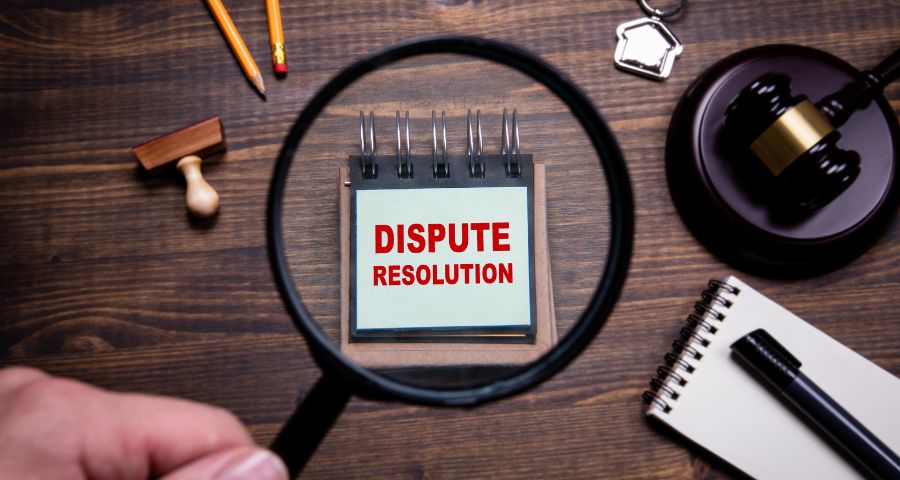
When used effectively, Alternative Dispute Resolution, “ADR,” which refers to any method of resolving disputes outside of litigation, results in achieving faster dispute resolutions at lower costs and sometimes even improved relationships. But as critics have pointed out, ADR too often looks and costs like the litigation it’s supposed to prevent.
“EDR,” (Early Dispute Resolution) is an emerging area of law designed to address that concern. EDR is defined as methods utilized to prevent potential disputes and resolve actual disputes in a time-efficient and cost-effective manner. One example of EDR is a corporate conflict prevention and management system to monitor and proactively deal with issues before they escalate. Importantly, EDR is practiced early in the stages of a dispute, and optimally begins pre-dispute, at the point of contract inception. EDR contract clauses require a good faith meeting by party decision makers to discuss the dispute and attempt settlement prior to initiating a lawsuit. By shifting the focus to dispute prevention and time and cost efficiency, EDR avoids the criticisms of inefficient or delayed use of ADR.
See full article: Previously published in the ABA Dispute Resolution July 2023 Just Resolutions Newsletter




